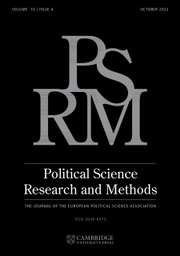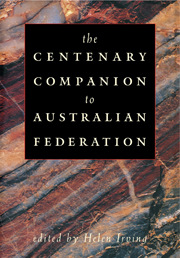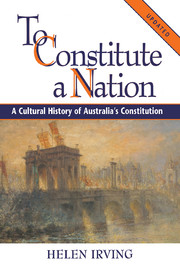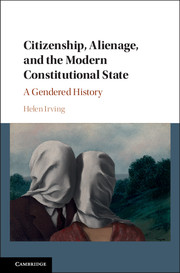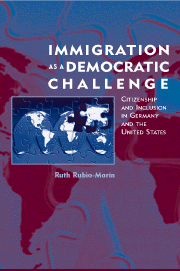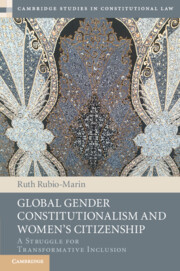Women as Constitution-Makers
Case Studies from the New Democratic Era
£111.00
- Editors:
- Ruth Rubio-Marín, Universidad de Sevilla
- Helen Irving, University of Sydney
- Date Published: March 2019
- availability: In stock
- format: Hardback
- isbn: 9781108492775
£
111.00
Hardback
Other available formats:
Paperback, eBook
Looking for an inspection copy?
This title is not currently available on inspection
-
That a constitution should express the will of 'the people' is a long-standing principle, but the identity of 'the people' has historically been narrow. Women, in particular, were not included. A shift, however, has recently occurred. Women's participation in constitution-making is now recognised as a democratic right. Women's demands to have their voices heard in both the processes of constitution-making and the text of their country's constitution, are gaining recognition. Campaigning for inclusion in their country's constitution-making, women have adopted innovative strategies to express their constitutional aspirations. This collection offers, for the first time, comprehensive case studies of women's campaigns for constitutional equality in nine different countries that have undergone constitutional transformations in the 'participatory era'. Against a richly-contextualised historical and political background, each charts the actions and strategies of women participants, both formal and informal, and records their successes, failures and continuing hopes for constitutional equality.
Read more- Offers case studies of women as constitution-makers in nine individual countries, with a focus on countries other than the 'West'
- Offers case studies of constitution-making in newly-democratising or post-conflict countries
- The Introduction draws lessons from a comparison of the case studies, as well as addressing larger, synthetic questions about both the importance of women's participation in constitution-making, and the obstacles women face as constitution-makers
Customer reviews
Not yet reviewed
Be the first to review
Review was not posted due to profanity
×Product details
- Date Published: March 2019
- format: Hardback
- isbn: 9781108492775
- length: 394 pages
- dimensions: 235 x 157 x 25 mm
- weight: 0.67kg
- contains: 1 table
- availability: In stock
Table of Contents
Introduction Ruth Rubio-Marín and Helen Irving
1. Women's movements and the recognition of gender equality in the constitution-making process in Morocco and Tunisia (2011–14) Sara Borrillo
2. Women and constitution-making in post-Communist Romania Elena Brodeala and Silvia Suteu
3. Re-living yesterday's battles: women and constitution-making in post-Saddam Iraq Noga Efrati
4. Women's participation in peace-building and constitution-making in Somalia Sakuntala Kadirgamar
5. Feminist legalism: Colombian constitution-making in the 1990s Julieta Lemaitre
6. Women and constitution-making in Turkey: from Ottoman modernism to a constitutionalism of women's platform Bertil Emrah Oder
7. Egypt's tale of two constitutions: diverging gendered processes and outcomes Mariz Tadros
8. Dialogic democracy, feminist theory, and women's participation in constitution-making Susan H. Williams.
Sorry, this resource is locked
Please register or sign in to request access. If you are having problems accessing these resources please email [email protected]
Register Sign in» Proceed
You are now leaving the Cambridge University Press website. Your eBook purchase and download will be completed by our partner www.ebooks.com. Please see the permission section of the www.ebooks.com catalogue page for details of the print & copy limits on our eBooks.
Continue ×Are you sure you want to delete your account?
This cannot be undone.
Thank you for your feedback which will help us improve our service.
If you requested a response, we will make sure to get back to you shortly.
×
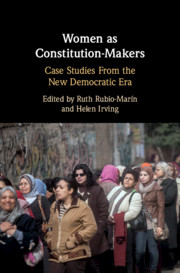
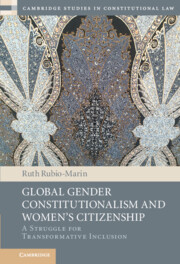
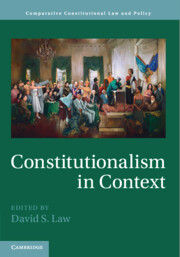
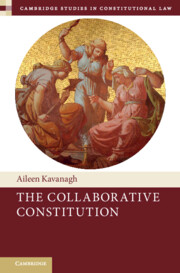
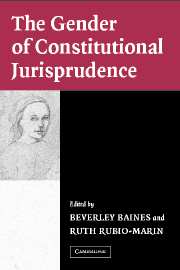
.jpg)

